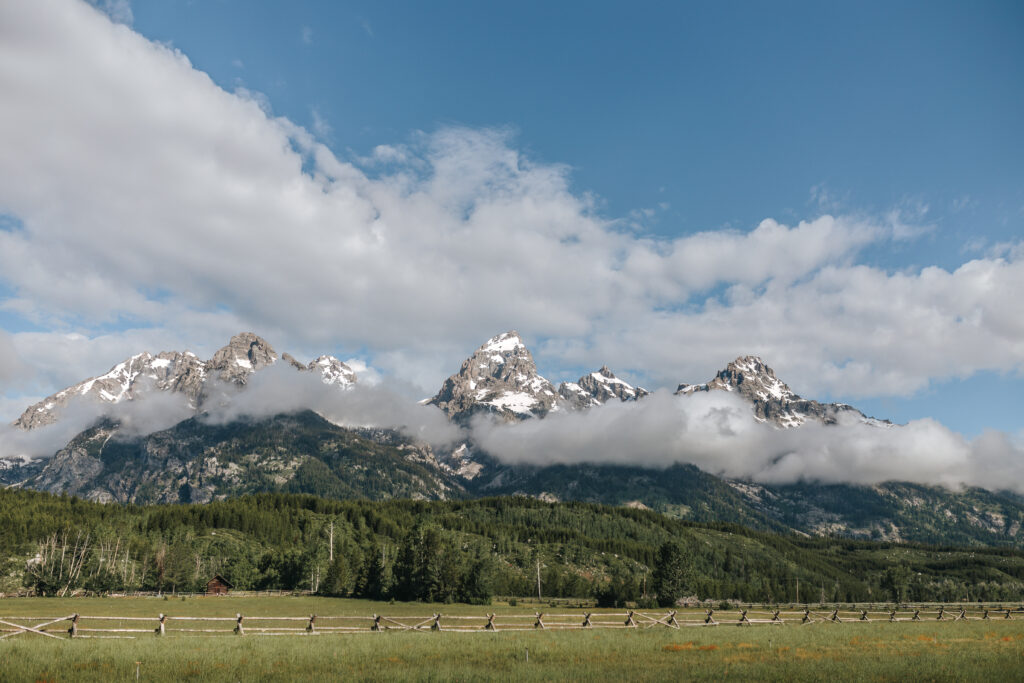Editor’s Note: DJ Sandler, a former Field Ecology summer camper, spent autumn of 2017 interning at TSS, and this is his final blog post about his time here.

The Teton Science School has, to some extent, always been a part of my life. A continuous staple in my family history, TSS has sparked adventurous spirits, created lifelong commitments to education, and inspired confidence and passion in numerous relatives and friends. As a young child, I repeatedly saw and heard stories of the lasting effects of this place-based education. My uncle, Doug Walker, began my family’s long relationship with the school; he found adventure and solace in the shadow of the mountains, and devoted the last years of his short life to the children in the valley. As a teacher at TSS, my uncle found passion in his newly discovered love of the outdoors, particularly the Greater Yellowstone Ecosystem, and purpose in his ability to engage kids in comprehensive place-based education. When Doug died climbing in the Tetons, it was my grandparents who threw themselves fully into TSS, the place that had given their son fulfillment and happiness in the last years of his life. Their participation in the school has been a constant from that time forward. Because of this, we made sure to visit the Teton Science Schools every time we found ourselves in Jackson Hole. As we walked around the campus my grandparents would talk about the importance of the program, relating how positively it had affected Doug, in large part because of the impact he felt he had on the children he taught.
By seventh grade I was ready to experience TSS for myself, and it surpassed all expectations. The field ecology program was a new world; for three weeks I soaked in a broad range of knowledge from nature enthusiasts only slightly older than myself, befriended people whose lives and beliefs were drastically different than my own, and deeply felt the importance of learning constantly from all of my experiences.
This is the reason that 5 years later, after my middle school experiences with TSS were distant memories, I got in my car and drove two months around the circumference of the United States to return to the Tetons. My early experiences at TSS had instilled in me a deep-seeded love for nature, and my desire to deepen those experiences brought me back to Jackson Hole where, once again, my hopes and expectations were surpassed by reality.
While many people know of Teton Science Schools in one way as I did through the middle school field ecology program, I had the rare privilege of being able to experience and communicate the breadth of the school’s functions. Teton Science Schools is not just field programs, not just indepenent schools near the Teton and Gros Ventre Ranges, not just a graduate school; it is all of these things brought together under a philosophy of leadership, community building, and place-based education. This, I discovered, is what made Teton Science Schools such an amazing experience for me 5 years ago. At TSS, we learn in multiple ways at the same time; TSS enables people to learn about themselves, about those around them, and always, at the heart of it all, about the importance of place.
On my last day in Jackson Hole, I stood on a wooden platform above the rooftops of the Teton Science Schools Jackson Campus on the challenge course named for my uncle, the catalyst for my own involvement with TSS. Joe Petrick, TSS’s Vice President of Field Education, who was an integral part of my experience at Teton Science Schools, had given me a prompt to think of an example of place-based learning for each week I spent observing programs. I walked slowly across each platform; it was later in the season than the ropes course was usually used and my hands were cold despite my gloves. I thought about visiting field groups walking through different ecosystems of Jackson, gaining a full and tangible understanding of their surroundings. I thought about Journeys School students fully experiencing the Jackson Hole Children’s Museum, completely in awe of the place they had spent all of their lives as they saw it in a new light. I thought of the graduate school students going out into the field and gaining a full teaching experience within the first year of their certification. I thought of the visting Village School students learning science and math through community-based projects, and the Wilderness Expeditions guides who had a chance to show other guides their expertise while driving through Yellowstone in the dead of winter. But this wasn’t all that there was to place-based learning; it also required constant reflection and empathy. Teton Science Schools’ students were able to gain self-confidence in their teaching, learning, and leadership abilities, and came to understand the importance of keeping a group together and being aware of and sensitive to those around them. TSS was an important educational experience that would impact my life for a long time, and those past few weeks had given me a clearer sense of why it meant so much to me.
Later that day my friend and I drove out of the valley, heading towards Missoula, our first stop on the way back to Vermont. Driving across long stretches of road and through winding hills until the towering peaks of the Tetons disappeared from view, I knew I would be back because of everything I had learned and still could learn from TSS and the Greater Yellowstone Ecosystem. In the meantime, I looked ahead at the road, fueled by a spirit of adventure and excited for what my next stop had to teach me.


